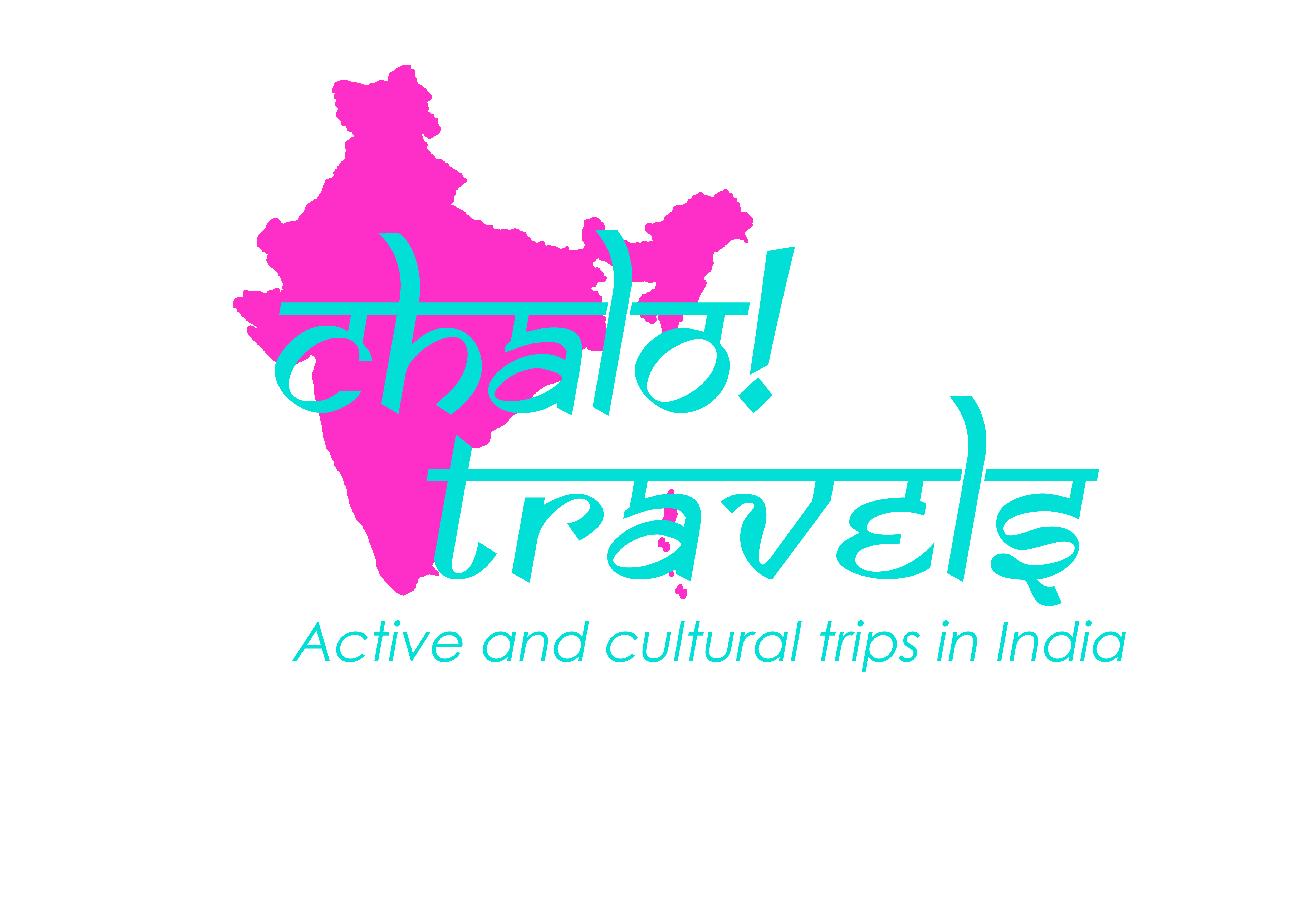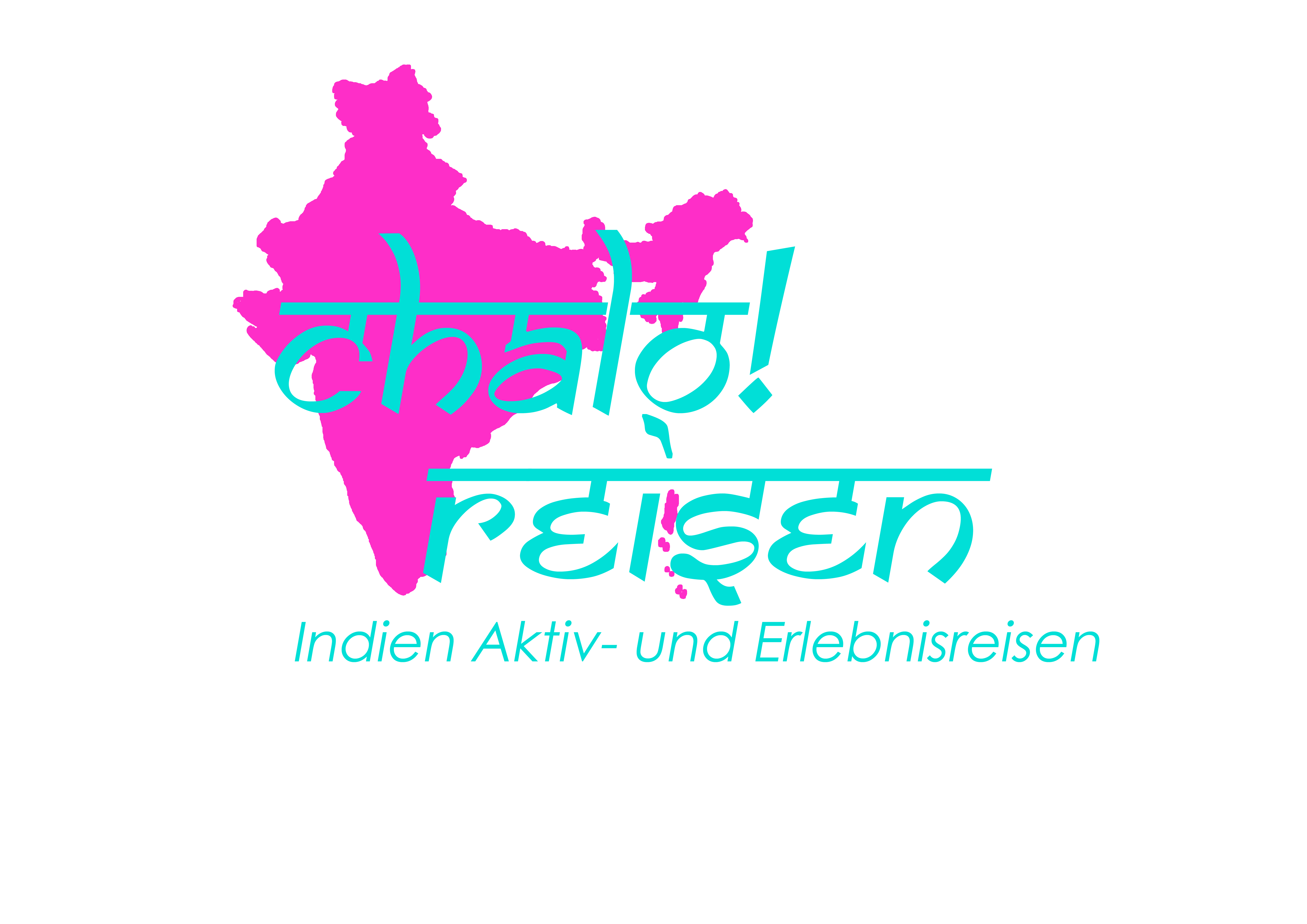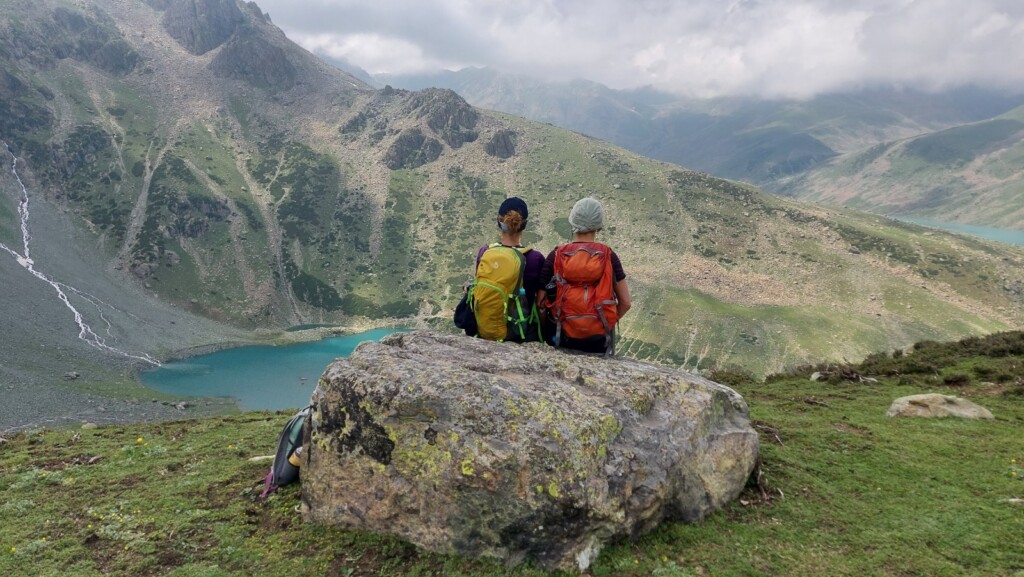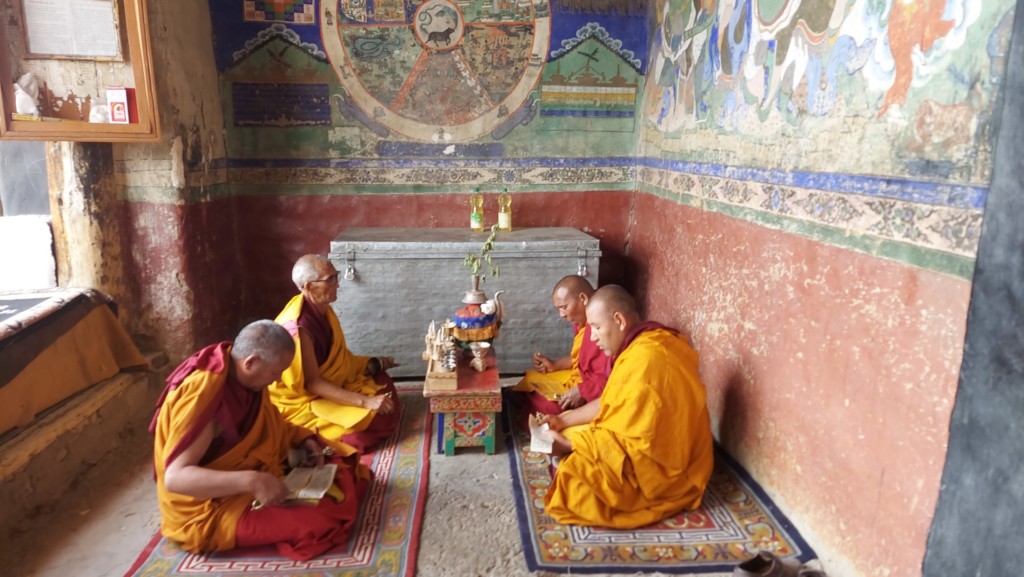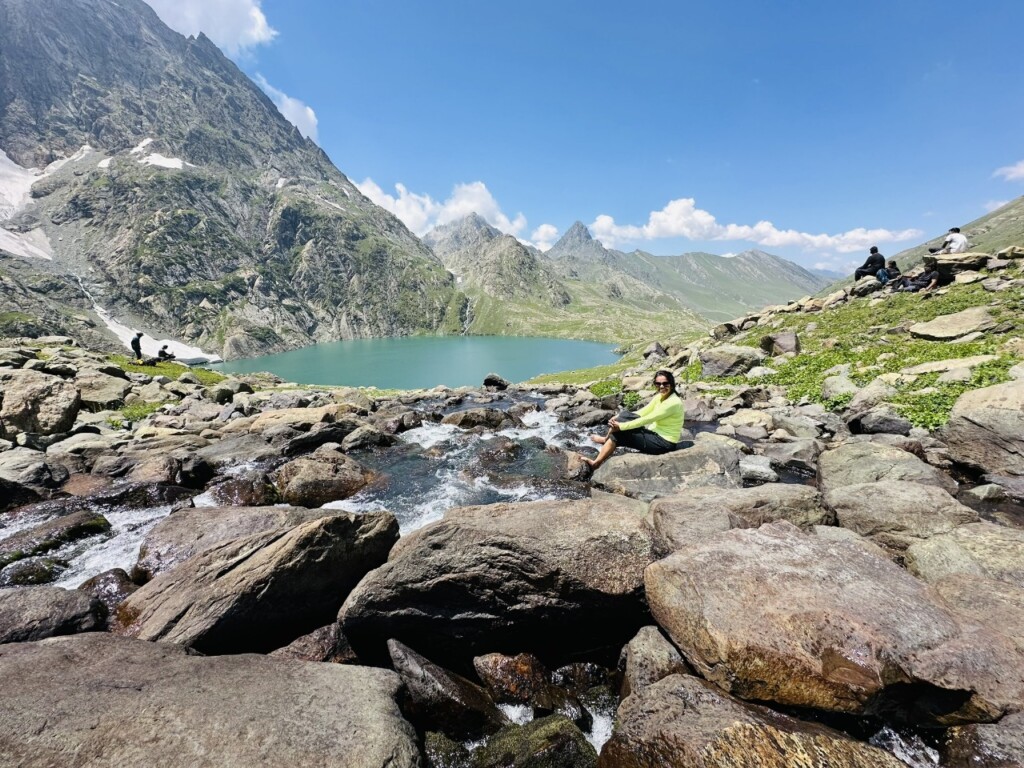- Sport & Abenteuer Reisen
- Aktive Kultur Reisen
- Trekking Reisen
Overview
Kashmir, often referred to as “Paradise on Earth,” is known for its breathtaking landscapes, snow-capped mountains, lush valleys, and pristine lakes. The region is rich in cultural heritage, offering a unique blend of traditional Kashmiri hospitality and adventure. Srinagar, the summer capital of Jammu & Kashmir, is famous for its mesmerizing Dal Lake, vibrant houseboats, and historic Mughal gardens.
Kashmir
The Gangabal Lakes Trek is a spectacular journey through the remote and untouched beauty of the Kashmir Himalayas. The trek takes you through dense pine forests, alpine meadows, and high-altitude lakes with stunning reflections of the towering peaks around them. This tour combines adventure with cultural exploration, allowing you to experience both the natural wonders and the rich traditions of Kashmir.
The journey continues into the high-altitude deserts of Ladakh—a region of stark beauty, ancient monasteries, serene lakes, and dramatic mountain landscapes. The highlight is the multi-day Tso Kar – Tso Moriri Trek, which traverses wild high-altitude terrain, crossing three passes over 5000 m (Horlam La, Kyamayuri La, Yalung Nyau La), leading through Changpa nomad camps, remote valleys, and pastures full of yaks and pikas. This trek offers a rich encounter with Ladakh’s wildlife and traditional life, culminating at the breathtaking Tso Moriri Lake and the isolated Karzok village.
Program
Day 1: Arrival in Srinagar
Arrival at Srinagar airport and transfer toyour houseboat. Relax and recover from your journey.
- Accommodation: Houseboat New Jacqueline, Nigeen Lake
- Meals: Dinner
Day 2: Srinagar Local Sightseeing
Explore Srinagar’s highlights including the Mughal Gardens (Shalimar, Nishat, Chashme Shahi), the old city, and enjoy a Shikara ride on Dal Lake.
- Accommodation: Houseboat New Jacqueline, Nigeen Lake
- Meals: Breakfast, Dinner
Day 3: Srinagar to Chattergul (Drive) – Trek to Mahlish
Drive to Chattergul (60 km, 1.5 hrs), then begin your trek to Mahlish (7 km, ~5 hrs). Camp at Remp Angan.
- Accommodation: Tented Camp
- Meals: Lunch, Tea, Dinner
Day 4: Trek to Kolesar Lake
Trek 6 km (5 hrs) from Mahlish to Kolesar Lake at 3700 m.
- Accommodation: Tented Camp
- Meals: Breakfast, Lunch, Tea, Dinner
Day 5: Trek to Nundkol and Gangabal Lakes
Trek 7 km (5 hrs) to Gangabal Lake, passing Nundkol.
- Accommodation: Tented Camp
- Meals: Breakfast, Lunch, Tea, Dinner
Day 6: Trek to Naranag – Drive to Drass
Trek 14 km (5 hrs) to Naranag Village, then drive 120 km (3 hrs) via Sonamarg and Zojila to Drass. Visit the Drass War Memorial.
- Accommodation: Hotel D Meadows, Drass
- Meals: Breakfast, Lunch, Dinner
Day 7: Drass – Kargil – Aryan Valley
Drive 140 km through Batalik and along the Line of Control. Explore Dah and Hanu Villages.
- Accommodation: Bete Homestay, Hanu Village
- Meals: Breakfast, Dinner
Day 8: Hanu – Leh
Drive 180 km (9 hrs) with stops at Lamayuru, Basgo, Magnetic Hill and Sangam.
- Accommodation: Jigmet Guest House, Leh
- Meals: Breakfast
Day 9: Local Sightseeing in Leh
Explore Leh’s highlights: Leh Palace, Shanti Stupa, Namgyal Tsemo Monastery, Sankar Gompa, and the bustling market.
- Accommodation: Jigmet Guest House, Leh
- Meals: Breakfast
Day 10: Monastery Tour around Leh
Visit Thiksey Monastery, Shey Palace and Monastery, and the beautiful Stok Palace and museum.
- Accommodation: Jigmet Guest House, Leh
- Meals: Breakfast
Day 11: Free Day in Leh – Optional Activities
Enjoy a rest day or choose from optional activities like a Ladakhi village visit with lunch, downhill cycling from Khardung La, a Thangka painting workshop, or a day at the Mahabodhi Meditation Centre.
- Accommodation: Jigmet Guest House, Leh
- Meals: Breakfast
Day 12: Drive to Tsokar Lake via Hemis Monastery
Visit the spiritually rich Hemis Monastery en route to Tsokar Lake, a saltwater lake known for its wildlife and nomadic culture.
- Accommodation: Tented Camp at Tsokar
- Meals: Breakfast, Lunch, Dinner
Day 13: Trek Day 1 – Tsokar to Nuruchan
Begin the trek into the Rupshu Valley, trekking across vast plains to the remote settlement of Nuruchan.
- Accommodation: Camp at Nuruchan
- Meals: Breakfast, Lunch, Dinner
Day 14: Trek Day 2 – Nuruchan to Rachungkaru
Cross Horlam La (4900 m) into nomadic pasturelands.
- Accommodation: Camp at Rachungkaru
- Meals: Breakfast, Lunch, Dinner
Day 15: Trek Day 3 – Rachungkaru to Gyama Barma
Cross Kyamayuri La (5410 m) and descend into high pastures.
- Accommodation: Camp at Gyama Barma
- Meals: Breakfast, Lunch, Dinner
Day 16: Trek Day 4 – To Tsomoriri Lake
Cross Yalung Nyau La (5450 m) and descend to Tso Moriri, a high-altitude lake with incredible wildlife and views. Explore Karzok village.
- Accommodation: Camp at Tsomoriri Lake
- Meals: Breakfast, Lunch, Dinner
Day 17: Drive to Pangong Lake
Drive through rugged terrain to Pangong Lake, famed for its surreal beauty and color-changing waters.
- Accommodation: Hut
- Meals: Breakfast, Dinner
Day 18: Drive to Nubra Valley via Shayok Route
Scenic drive along the Shayok River to Nubra. Visit Diskit Monastery and sand dunes of Hunder.
- Accommodation: Hotel, Nubra
- Meals: Breakfast, Dinner
Day 19: Drive back to Leh via Khardung La
Drive across Khardung La Pass (5359 m) to Leh.
- Accommodation: Jigmet Guest House, Leh
- Meals: Breakfast
Day 20: Departure from Leh
Transfer to the airport for onward travel.
- Meals: Breakfast
Additional day in Leh possible
Included services
- Accommodation: as mentioned
- Vegetarian meals: All meals included during the trek; breakfast and dinner provided at hotels, in Leh only breakfast
- Transport: All ground transfers by AC Innova cars, Trekking gear: High-quality tents, sleeping bags, mats, dining/kitchen tents, toilet tents
- Experienced mountain guides, cooking staff, and horses for carrying backpacks
International/domestic flights and visa.Personal trekking gear and clothing.Tips for guides and local staff.
Highlights

Dal Lake Srinagar 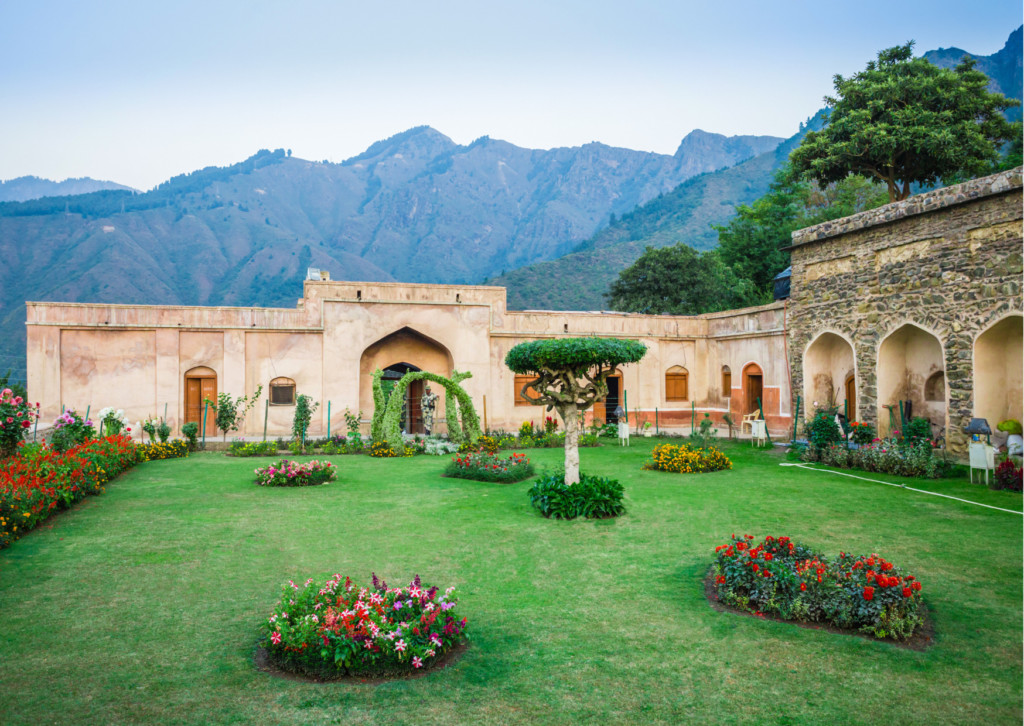
Moghul Garden Srinagar 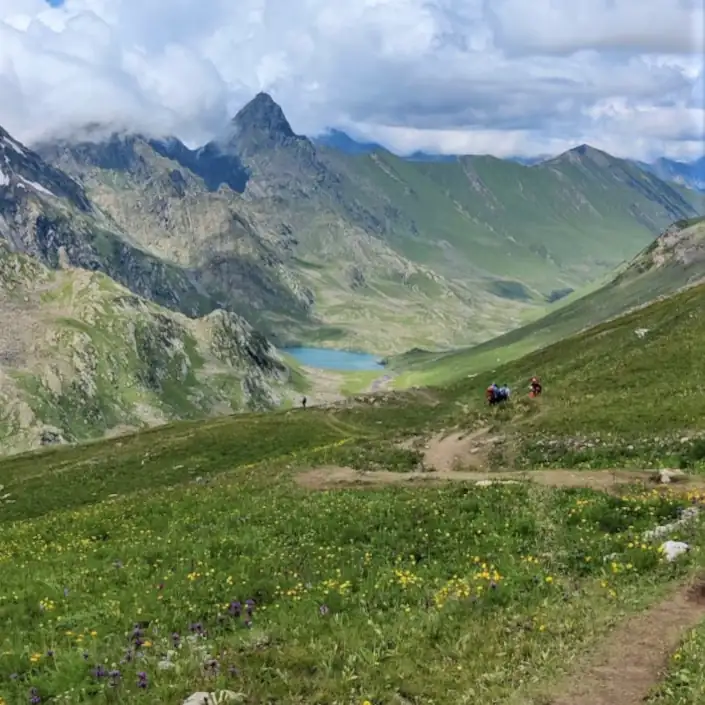
Kashmir Trek 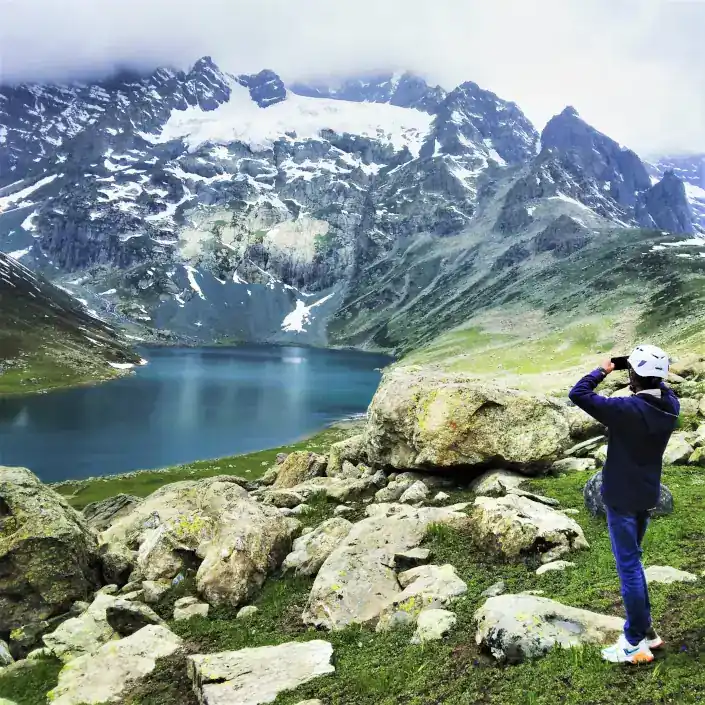
Gangabal Lake 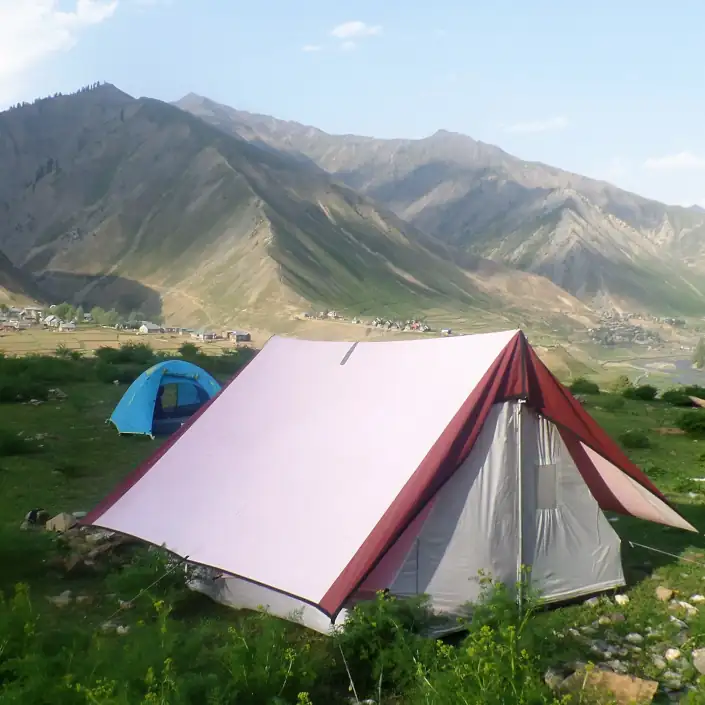
Camp 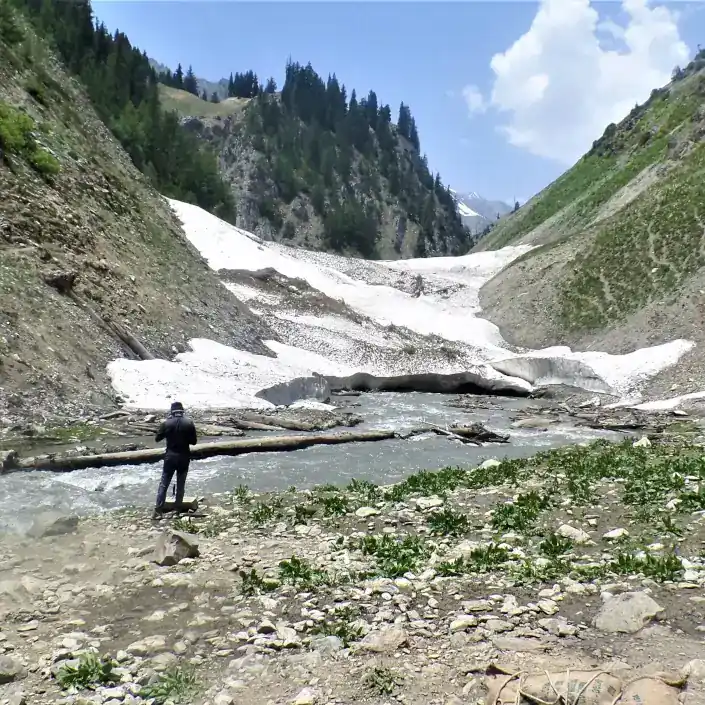
Trekking 
Kashmir Trek 
Zoga 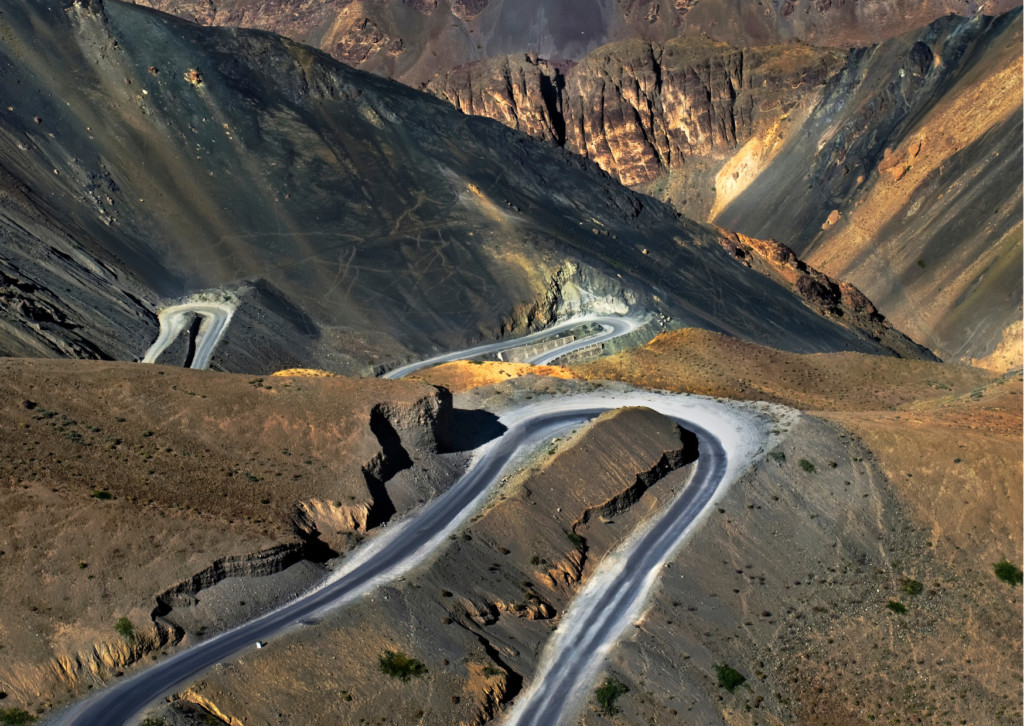
Zojila pass 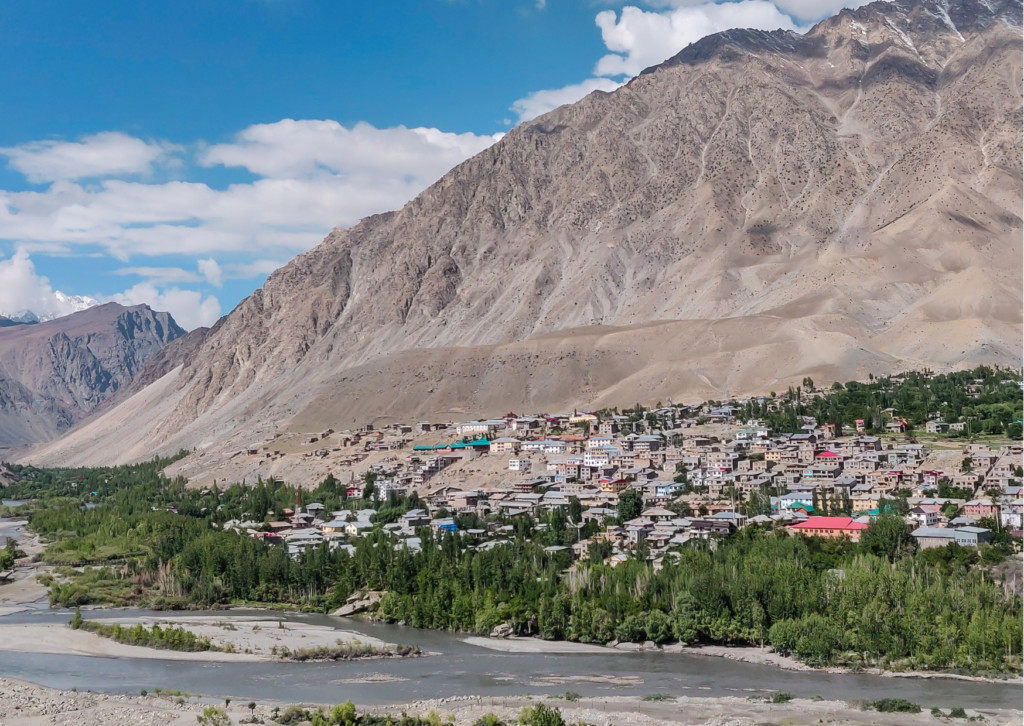
Kargil 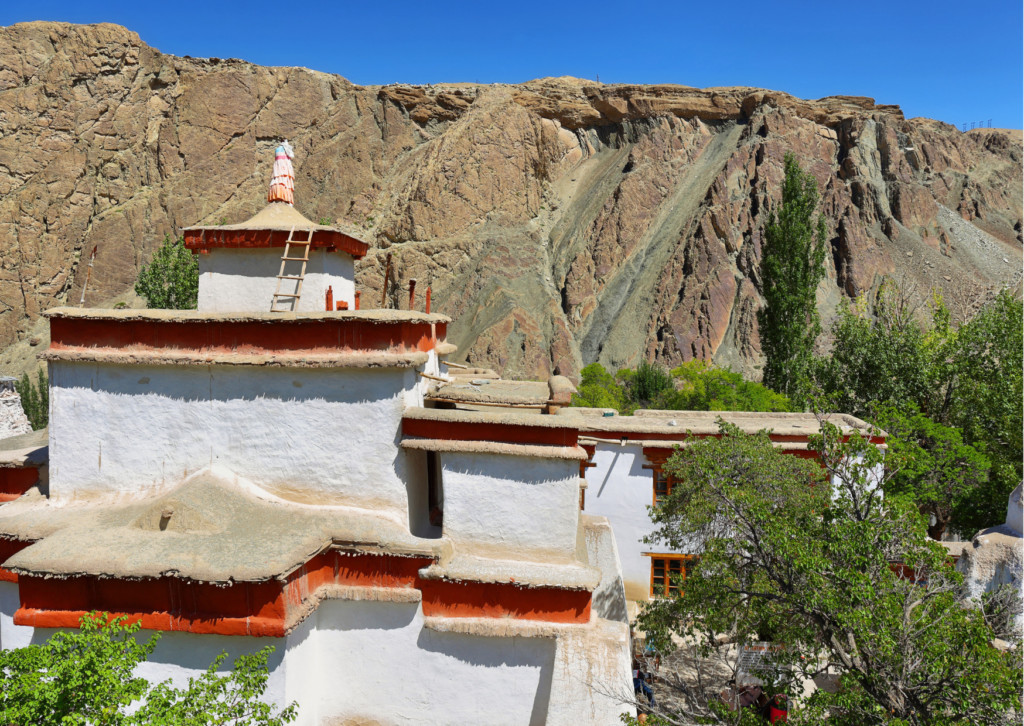
Ladakh 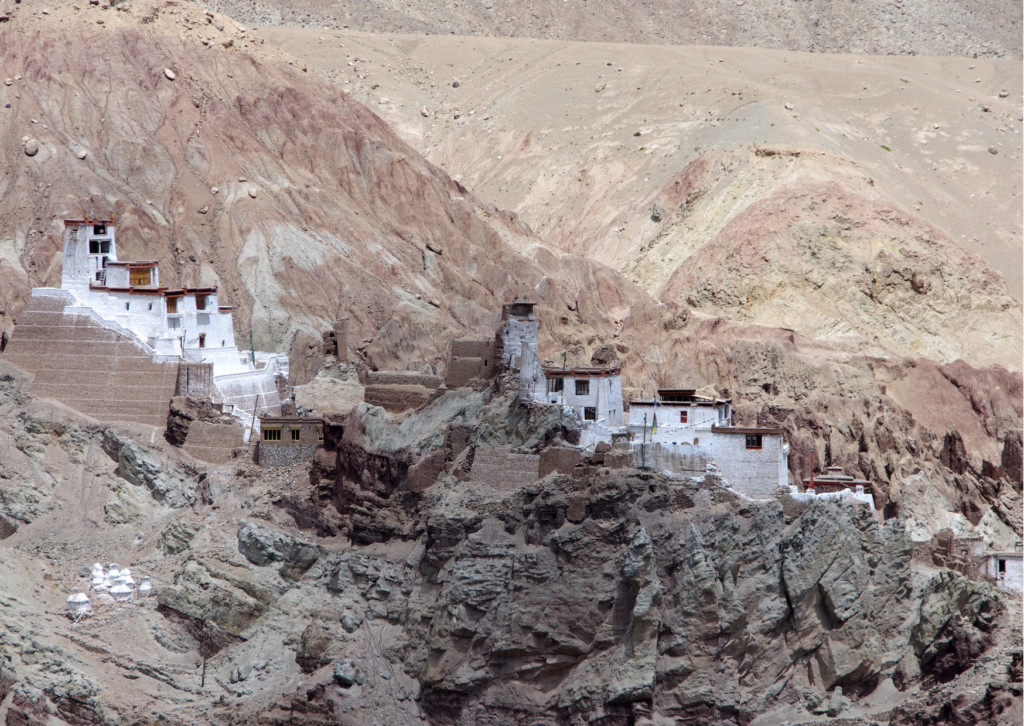
Alchi KLoster 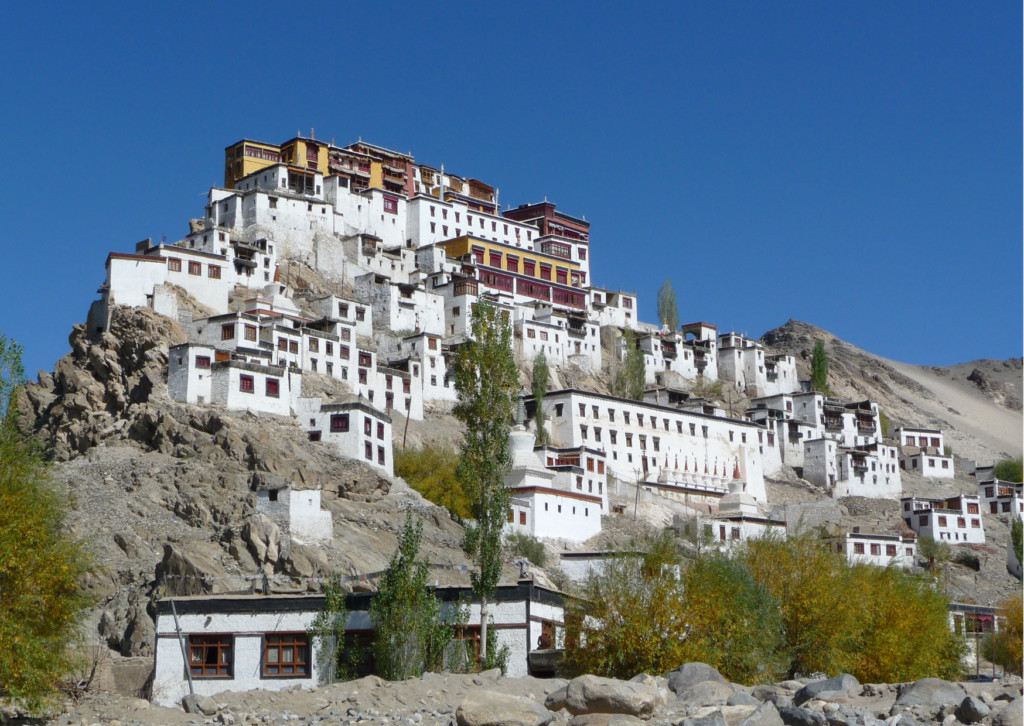
Thiksey Klsoter 
Ladakh 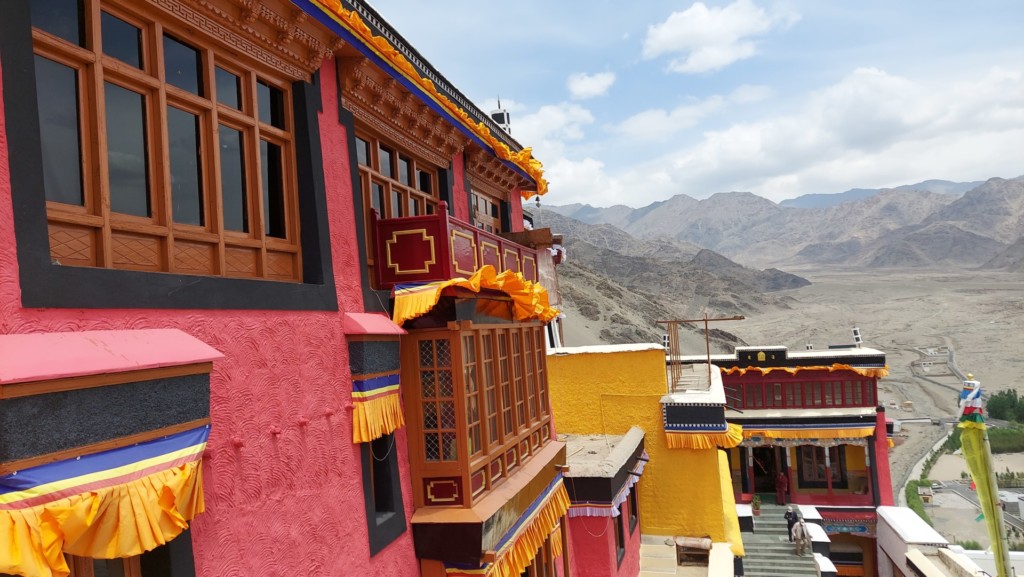
Thiksey Monastery 
Monks 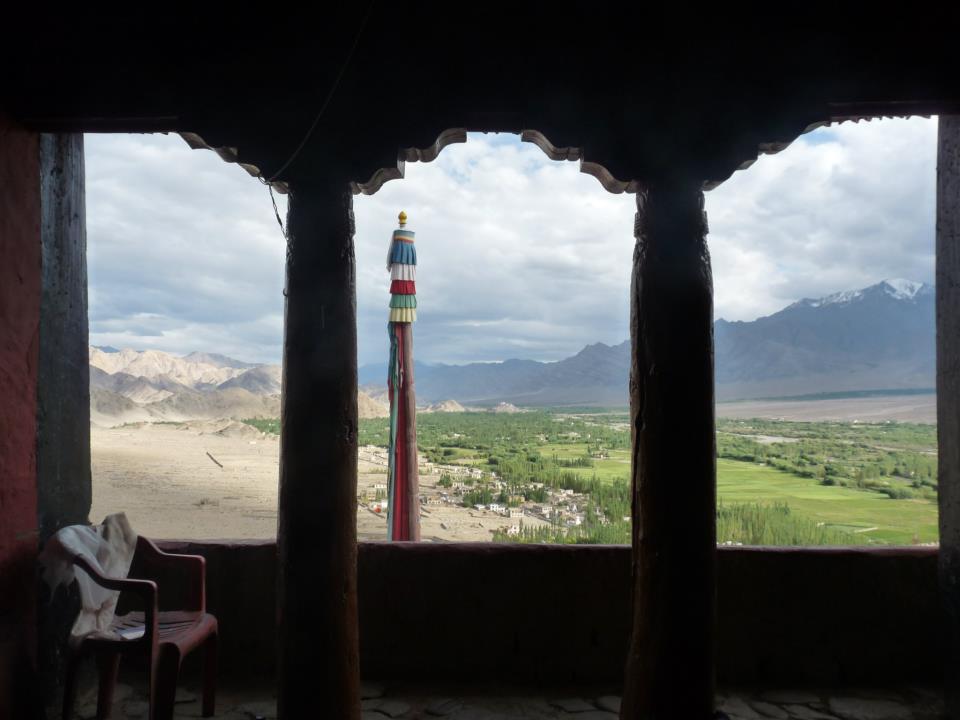
Ladakh 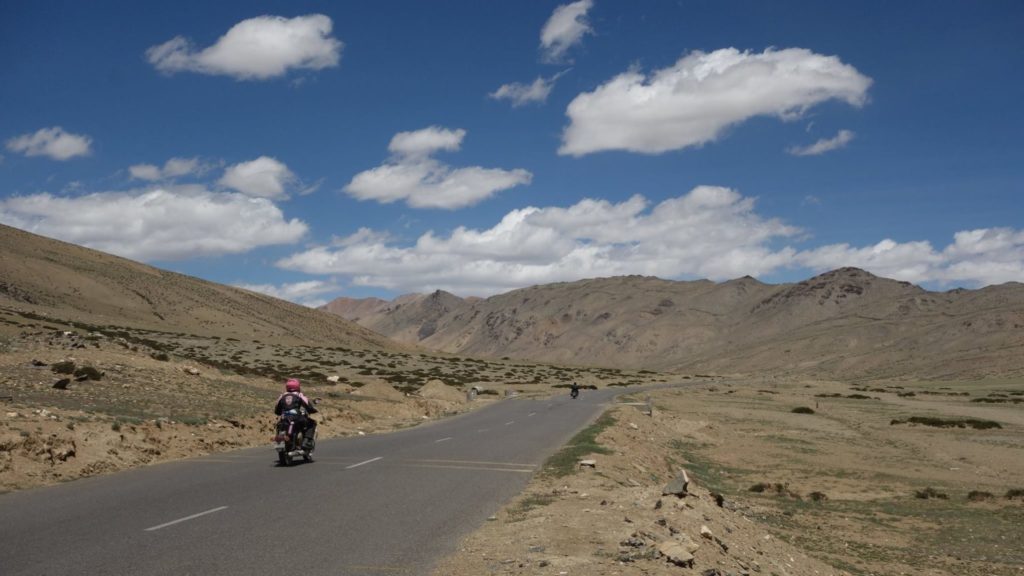
Ladakh 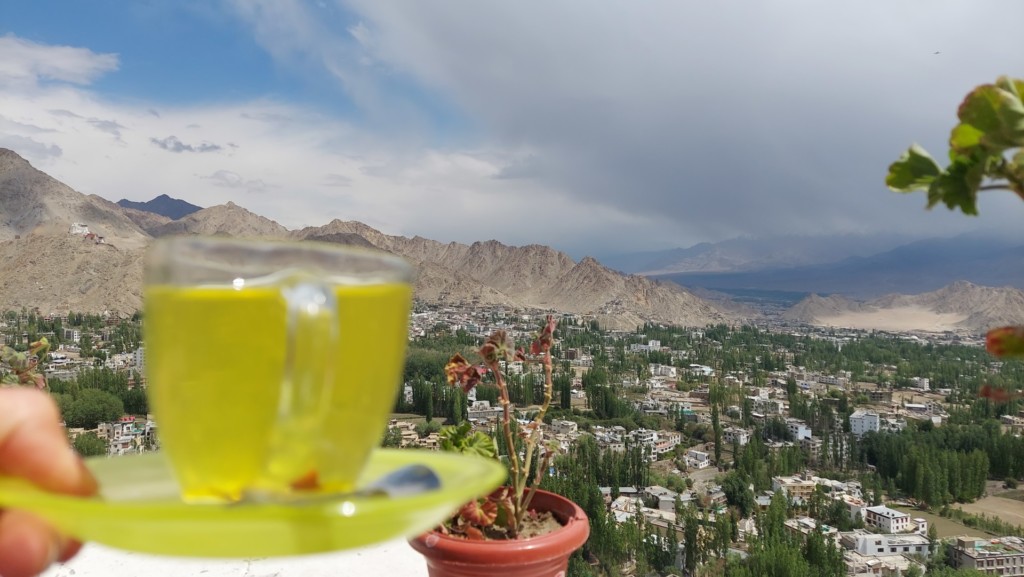
Leh 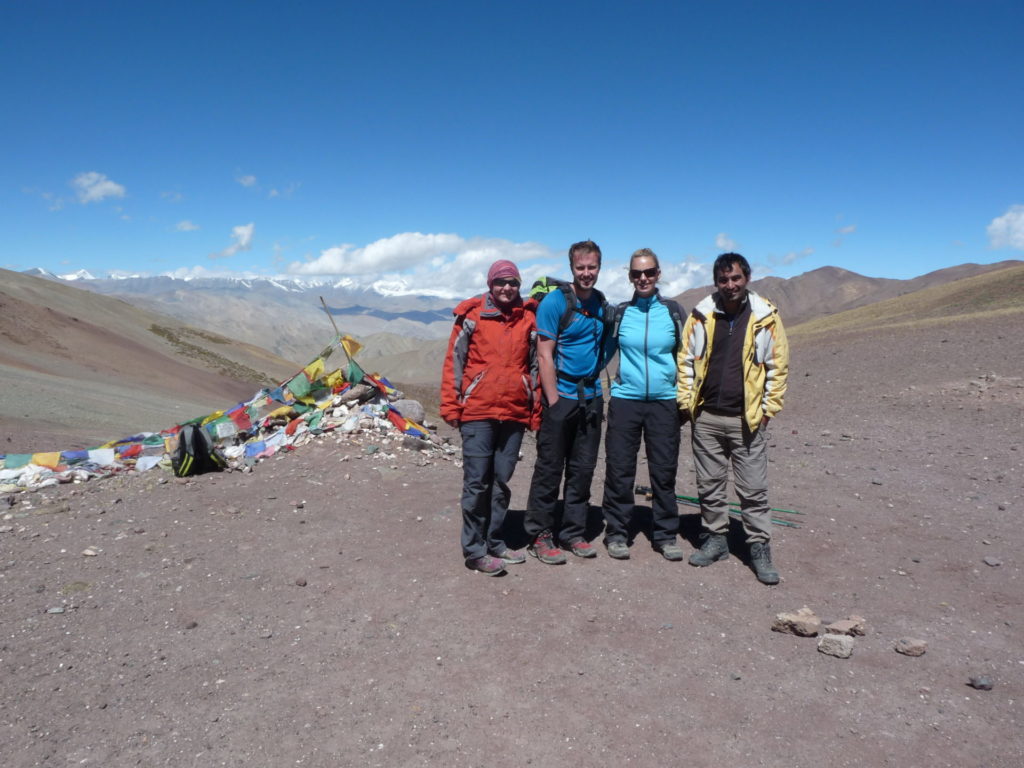
Pass 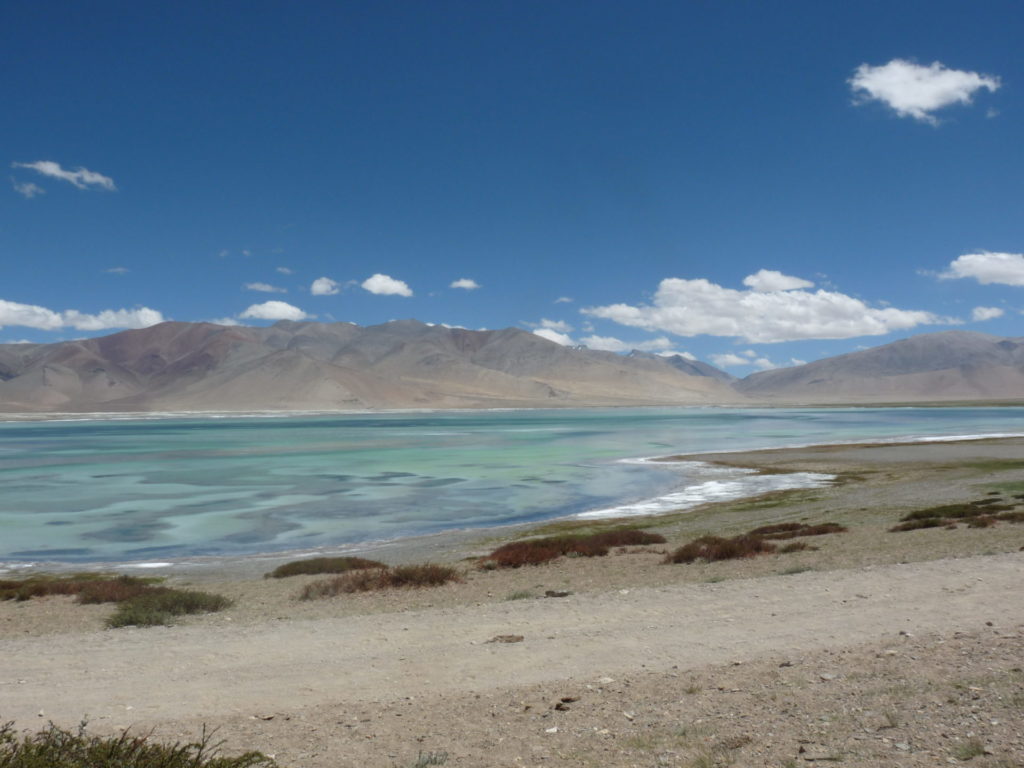
The Tso Kar Lake 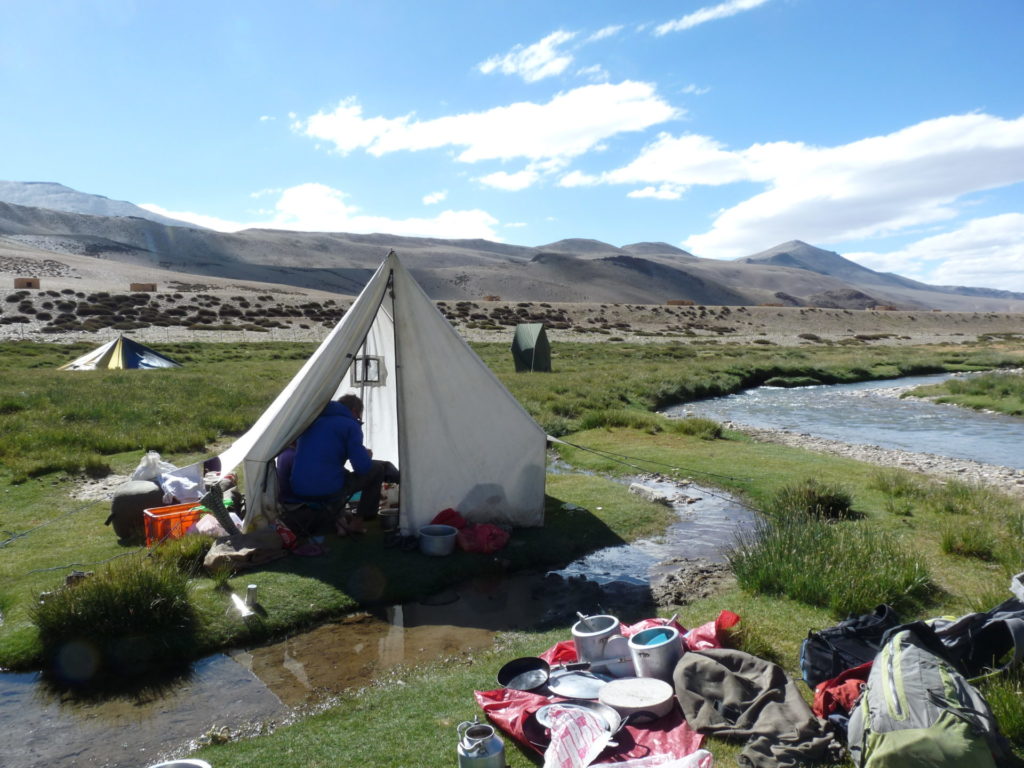
Trekking Camp Ladakh 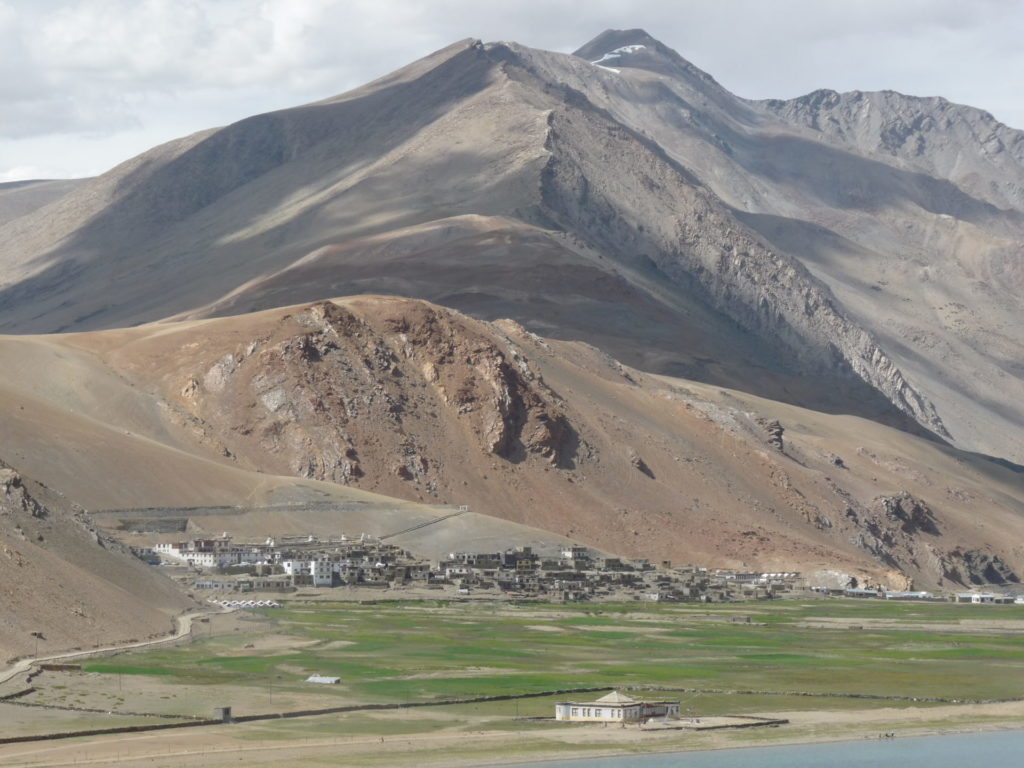
Karzok 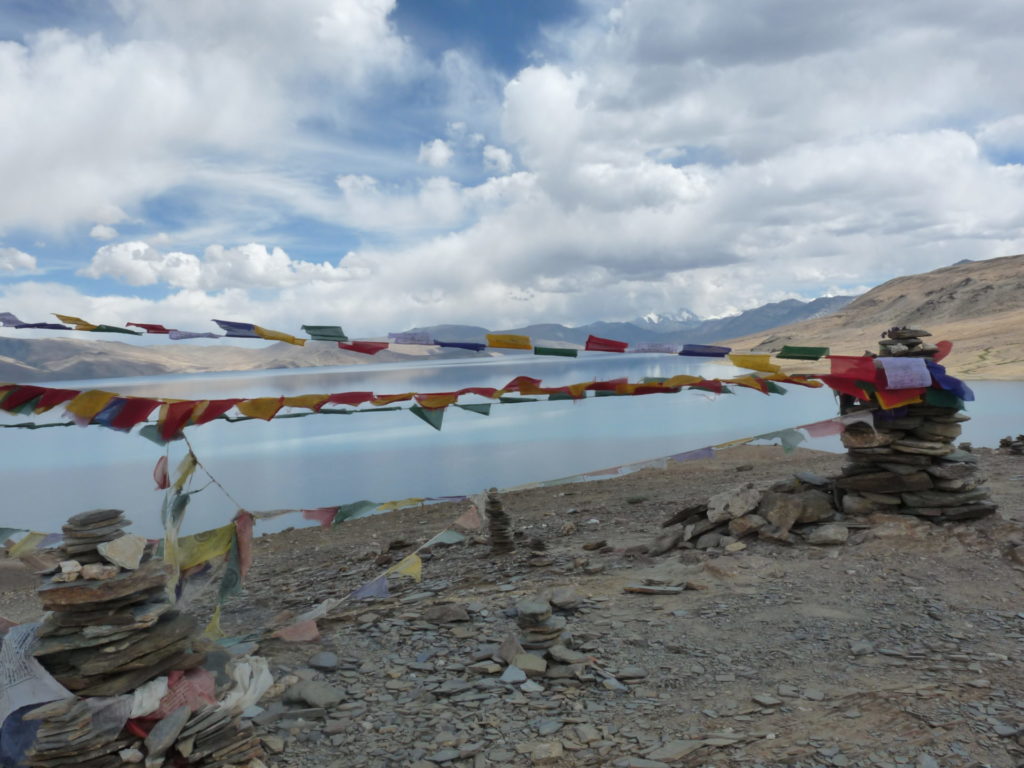
Lake Tsomoriri 
Marmot 
high passes
Prices and dates
For 2 pax as a private tour 3000 € per person
From 4 pax as a group departure tour with a (german speaking) tour guide: 3000 €
Fixed departure:
19. Juli 2026-07. August 2026
Best time
July-August
Travel info
Security Situation
In Kashmir, insecurity is always looming in the form of insurgencies, conflicts with the military and attacks. At the moment, the situation is very calm and seems stable. The locals are also keen on this: The Kashmiris are happy about the steadily growing tourism. We keep ourselves informed and reserve the right to make changes in the program.
Requirements of the trek
We will climb to over 4000 meters during the trekking tour and spend the night at 3600 meters. Not only is a moderate fitness level necessary, but also the ability to acclimatize to the altitude. We will be happy to advise you before the tour what can be done in terms of preparation for the trekking tour. High altitude training prior to the trip may be recommended.
Information about trekking in the Indian Himalayas with Chalo! Travel
Mountain guide and trekking team
On all our treks we have at least one (for larger groups of 6 participants or two) trained local mountain guides. Our mountain guides have all completed at least the Indian mountaineering training, many of them have also taken part in the advanced courses.
You are familiar with the trekking routes and know the terrain excellently. Our mountain guides all speak English.
In addition, there is a local team consisting of a cook (if the group consists of only two participants, the mountain guide also takes over the tasks of the cook), helpers, horsemen with horses or Nepalese carriers, depending on the type of trek.
All our team members have been working with us for years, are very friendly and always strive to provide our guests with a great trekking experience. Their English is rather mediocre or non-existent, but this is not necessarily a hindrance to communicating with them.
Trekking routes
The trekking routes are designed for the skills of our guests and are all feasible for a person with a good fitness level, unless otherwise mentioned. The daily routes are between five and eight hours long (with breaks) and an average increase of around 500-800 metres of altitude is completed.
In between, rivers may have to be crossed or crossed. The paths are partly well developed, but sometimes also almost non-existent. On our trekking routes there are hardly any villages in between, so we will take enough food for the whole tour.
On our treks you can cross passes, snow or glaciers. On steep slopes, we have safety equipment with us.
Daily routine (Depending on the length and intensity of the trek, the times may vary)
7: 00 Get up with tea
7:30-8:30 Breakfast
7:00-9:30 a.m. Dismantling of the camp
8:00- 9:30 Start Trek
13:00 Lunch on the way
15:00-17:00 Arrival at the camp and camp construction
15:30-17:30 Snacks
19:00 Dinner
Altitude and altitude sickness
Altitude sickness is a very important topic that should not be underestimated, especially during our trekking tours in the Indian Himalayas. At altitudes above 3500 m, our body has to slowly get used to the low air pressure, which also causes less oxygen to enter our lungs. The first signs of altitude sickness are headaches, which are accompanied by dizziness, nausea, insomnia and loss of appetite. It becomes problematic when water accumulates in the lungs and brain and edema occurs. Then only the immediate descent to lower altitudes will help. To prepare for the highs on our treks, we will either spend a few nights at high altitudes before the trek or slowly ascend during the trek to acclimatize. If we notice that there are problems with our guests (each person is otherwise able to acclimatize, regardless of age, gender and fitness level), it may happen that either the entire tour group or the participant descends/returns with a team. In addition, it makes sense to take an emergency drug for altitude sickness. For this, it is best to consult the pharmacy or the travel doctor. For certain treks we will also have oxygen with us.
Luggage
Each trekking participant is responsible for his own clothes and personal belongings. Depending on the trek, we are either on the road with horses or carriers. If we have load horses, one bag per participant can be loaded onto the horse. In the case of treks with carriers, all personal luggage must be carried independently. Tents, sleeping bags, mattresses and food are carried by our porters.
For trekking tours with horses, a day backpack with space for the lunchbox, a water bottle and warm overcoat clothing should be taken with you. Here to the complete packing list for our trekking tours.
Packing list for trekking tours
- Sleeping bag (will be provided by us)
- large backpack or soft tote bag so that the pack animals can carry the luggage
- Small backpack for the day approx. 30-40 l with rain cover
- Flashlight / headlamp
- 2 refillable water bottles
- Walking sticks
- Passport and passport copy
- Camera with spare batteries and memory card
- Headgear as sun protection
- Good sunglasses
- Cap
- Scarf, buff
- gloves
- Windpants
- Trekking pants
- Functional underwear long
- Walking shoes
- Socks thick and thin
- Sneakers, sandals and / or slippers
- Windbreaker
- Warm jacket
- Fleece pullover / jacket
- Tshirts
- Sun cream, lip balm min. Protection 40
- Fat cream
- Water purification tablets
(boiled and filtered water is provided) - own medication for headaches, nausea, digestive problems, colds)
- Blister plasters and bandages
- own hygiene article
- Toilet paper
- Hand disinfection
Meals
During the trek there will be a vegetarian full catering. Water is either boiled or we have a water filter with us.
Breakfast (daily selection):
- Coffee/Tea
- Oatmeal porridge/muesli/cornflakes/Indian porridge
- Indian breakfast
- Sliced fruit/vegetables
Lunch (mostly lunchbox), sometimes warm in the camp
- Sandwiches/Indian (rice, chapati, vegetables)/potatoes
- Juices
- Fruit
Snacks
- Tea/coffee
- Cookies
- Indian snacks
Soup
Dinner
- Vegetable dish
- Lentil dish
- Rice
- Chapati
- Salad
- Dessert
Accommodation and camp
We have very comfortable and spacious two-man tents. Our mattresses are practical but simple if there are problems with sleeping on hard surfaces, please take your own mattress with you or order from us. Our sleeping bags are freshly washed and have a very good quality with comfort zone up to -5°C/extreme zone up to -20° C. It is recommended to bring personal indoor sleeping bags.
In addition, we have a spacious dining tent with tables and chairs, a kitchen tent for the team and a toilet tent. For treks up to 4 people, the kitchen tent can also act as a dining tent at the same time.
For trekking tours with porters, we will take our smaller, lighter tents with us and do without a toilet tent.
Weather
In the Himalayas, temperatures fluctuate widely. While it can get warm up to 25°C during the day and the sun is not only warming, but also very intense (sun protection is a must), it can also cool down significantly below the minus-grade at night, especially in the months end of September and October, as well as in June. There may also be weather changes with snow on the passes.
